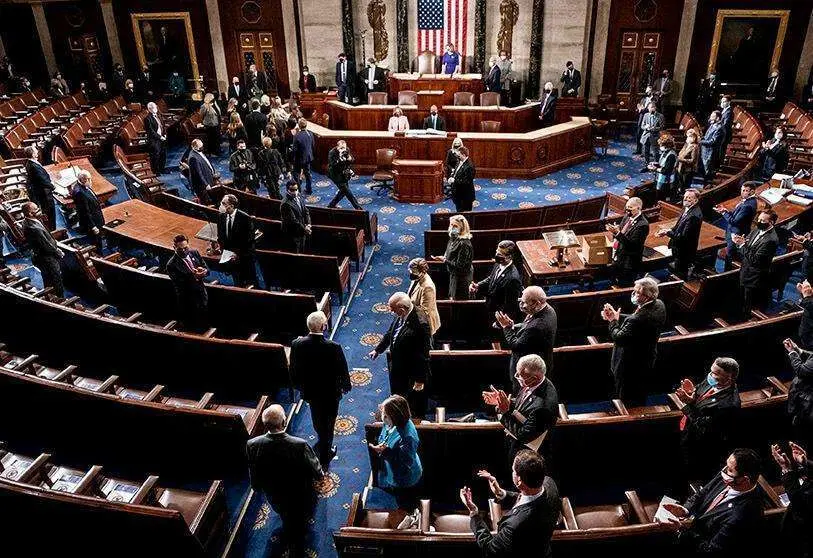For a handful of dollars and populists

Finally, California Republican Congressman Kevin McCarthy has been elected on the fifteenth ballot as Speaker of Congress and thus becomes the third highest authority in the United States. With even greater difficulty than his predecessor in not being supported by members of his own party, Frederick H. Gillet, who in 1923 needed nine votes to become House Speaker. And a far cry from the 133 votes needed in 1856, when parties were little more than a periodic gathering of friends, foes and independents, despite the fact that the election took forever for the moderate McCarthy. But the situation today is quite different. A handful of Republican Party congressmen very close to Trumpism, not yet residual and still with specific weight in the party, have paralysed the US Congress to demand, among other things, that President Biden be investigated for allegedly manipulating federal action in the investigation of some alleged crimes of former President Donald Trump. And to turn, as soon as possible, the judicial page of the calamitous episode of the assault on the Capitol on 6 January 2021.
It will be difficult for the vast liberal and conservative majority in the United States to forget that day. When the world's first and foremost democracy was put on the ropes by a mob of crazed Donald Trump supporters, kicking against the institutions that have made them politically free. Even these days, the ringleaders of the Republican opposition, Congressmen Chip Roy and Scott Perry, have been heard to say that they finally gave in to McCarthy's proposals because they had succeeded, with their handful of demands, in "returning the People's House to its rightful owners". A display of infectious populism, which surely conceals part of the Republican insurgents' demands, the one that called for campaign funds to benefit not moderate candidates, but the new-fangled ultra-Montanists.
Because of this handful of dollars and self-interested Trumpism, the American public and international society has been able to watch the squabbling and bickering between the centrist, traditional, mainstream conservatives and the minority, waning populists. With a politically happy ending because, a priori, the third authority of the first power of the free world is now an experienced moderate congressman, capable of obtaining broader consensus on issues as important as foreign and security policy, democratic strengthening and institutional balance.
Even so, the new episode of the "storm over Washington" soap opera has shown that demagogues and populists enter democratic institutions as and when they want to. And their actions aimed at perpetuating certain interests become politics, dressed and disguised as silk. Among such fabulists, the anti-establishment extremists collude and rage. Those who work to break the rules of the game and overthrow the rule of law and the liberal system. Hooded, they hide anarchist, autocratic, secessionist and reactionary ideologies and objectives. They enter institutions and governments to reverse liberal progress in America and Europe. They seek to overturn the constitutional order of republics and parliamentary monarchies. They agitate and polarise. They are a handful of infectious people whose institutions, which have made them politically free and equal citizens before the law, also allow them to coexist with the vast and tolerant social majority. Their end is near, in the next vote.

